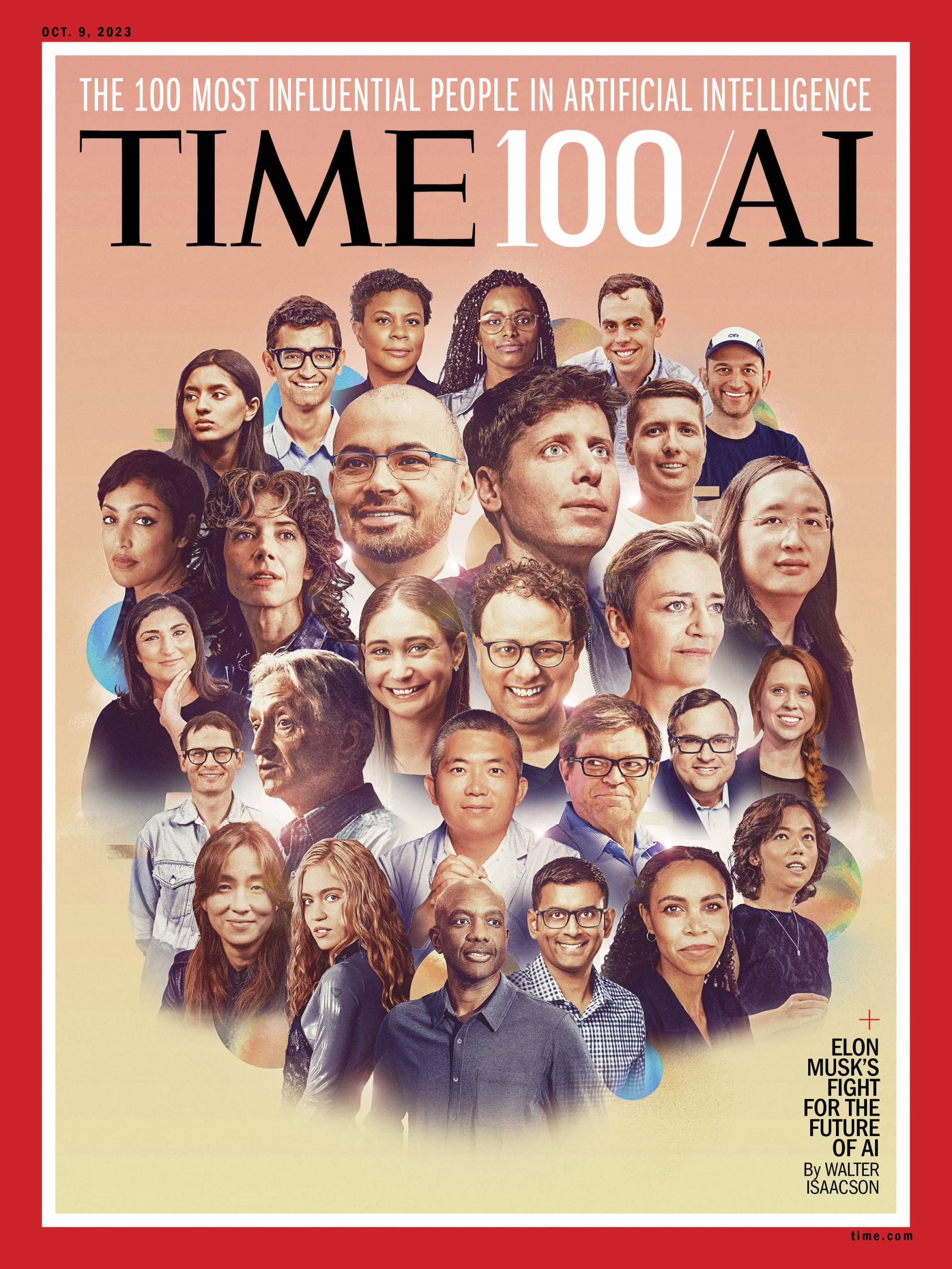The inaugural TIME100 AI list of the 100 most influential people in artificial intelligence features two current Princetonians — Arvind Narayanan, professor of computer science and director of the Center for Information Technology Policy, and Sayash Kapoor, a CITP graduate student — as well as four alumni:
- Dario Amodei, 2011 Ph.D. alumnus and CEO and president of Anthropic.
- Fei-Fei Li of the Class of 1999, professor of computer science at Stanford University.
- Eric Schmidt of the Class of 1976, co-founder of Schmidt Futures and former CEO of Google.
- Richard Socher, a member of the 2009 graduate class and the CEO and founder of You.com.
“This group of 100 individuals is in many ways a map of the relationships and power centers driving the development of AI,” writes TIME editor-in-chief Sam Jacobs. “They are rivals and regulators, scientists and artists, advocates and executives — the competing and cooperating humans whose insights, desires, and flaws will shape the direction of an increasingly influential technology.”
More on the Princeton AI influencers below.
Dario Amodei
Amodei is one of the seven co-founders of Anthropic, an artificial intelligence safety and research company working to build reliable and steerable AI systems. He came to the University after completing his undergraduate degree at Stanford, and he completed his Ph.D. in physics (with a focus on biophysics) under Michael Berry and Wiliam Bialek.
Before founding Anthropic, he worked at several leading tech companies, including Google and OpenAI, where he led the GPT-2 and GPT-3 teams.
Sayash Kapoor and Arvind Narayanan
Arvind Narayanan and his graduate student Sayash Kapoor are writing a book on “AI Snake Oil” — drawing from their popular substack column of the same name — which looks critically at what AI can and cannot do.
“AI is at a turning point,” Kapoor told the CITP webpage CITP.princeton.edu. “The conversations that were appealing only to researchers two years ago are now in front of journalists, policymakers and the public. I’m glad our work has been useful to guide this discussion.”
“I’m especially glad that we’ve been able to contribute to the public discourse without curtailing our research activities,” Narayanan said. “If anything, each side of our work has helped us be more effective at the other.”
Fei-Fei Li
Li joined Stanford’s computer science faculty in 2009, and stayed there for the majority of her career. She studied physics and computer science at Princeton before focusing on computer science in graduate school at Caltech.
Li is a vocal advocate for diversity in AI and co-founded AI4ALL with Princeton’s Olga Russakovsky. The co-director of Stanford’s Human-Centered AI Institute, Li also wrote “The Worlds I See: Curiosity, Exploration, and Discovery at the Dawn of AI,” a first-person account of her journey to creating ImageNet and becoming a world leader in AI image recognition.
Her work expanded the use of AI for health care and paved the way for the image-recognition AI systems operating today, which prompted Wired to describe her in 2018 as “one of a tiny group of scientists — a group perhaps small enough to fit around a kitchen table — who are responsible for AI’s recent remarkable advances.”
Eric Schmidt
Schmidt was a member of the Class of 1976, starting as an architecture major before switching to electrical engineering, where computer science courses were then taught. He earned a Bachelor of Science in Engineering degree from Princeton before going on to complete his Ph.D. at the University of California-Berkeley.
The co-founder of Schmidt Futures also worked at Bell Labs, Sun Microsystems and Novell before joining Google as CEO in 2001.
In his interview with TIME, Schmidt said: “I used to say that [general intelligence] was achievable in 20 years. I think it’s now 10 years. The level of innovation I’m seeing now is stronger than I’ve ever seen in my entire life by orders of magnitude. I’ve been through timesharing and the PC industry, the web revolution, the Unix revolution, and Linux, and Facebook, and Google. And this is growing faster than the sum of all of them.”
Richard Socher
TIME wrote that Socher hopes his You.com, an AI-powered search engine free from ads and with a chatbot giving conversational answers, will outcompete Google.
Socher started his graduate studies at Princeton before transferring to Stanford, where he completed his Ph.D. in 2014, then joined the faculty for a few years before moving to industry.
TIME cited his research in natural language processing as having been “integral to the field’s advancement.” To make You.com profitable while avoiding ads, Socher plans to offer users unlimited AI searching and personalized machine learning for $15 per month, TIME said.
Credit: Source link




